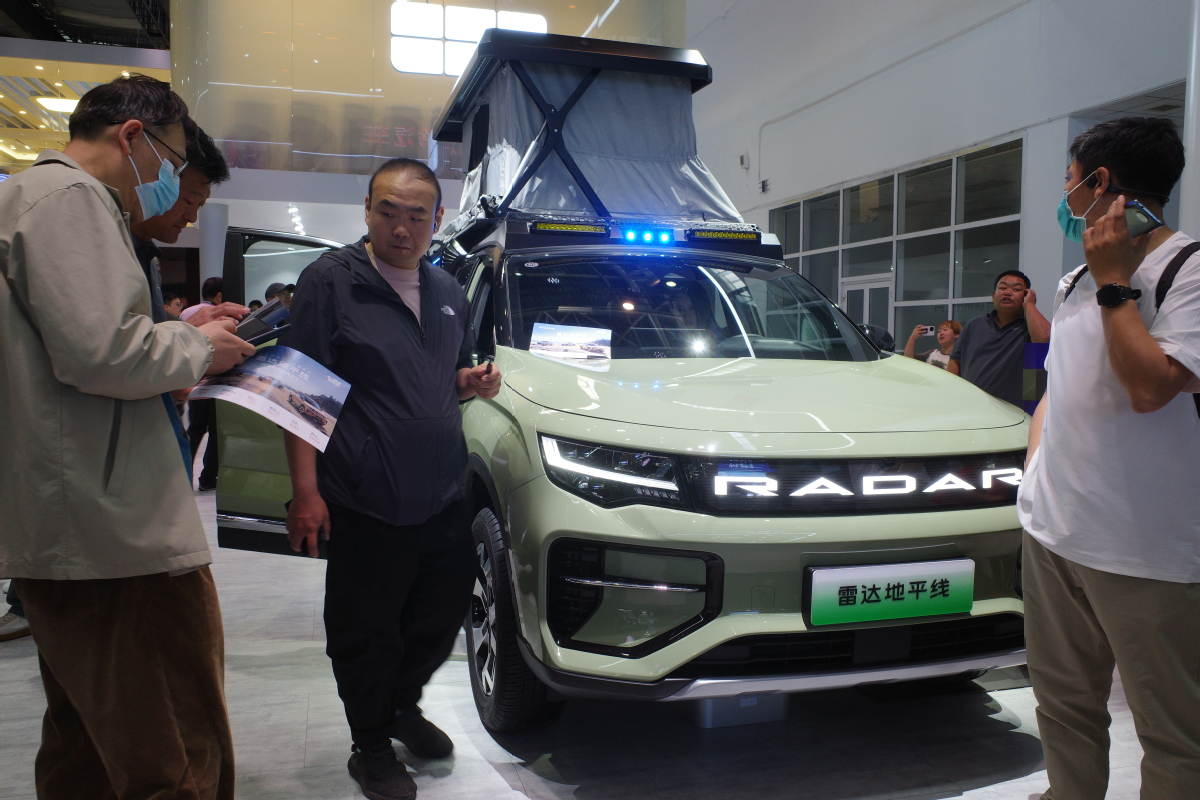Overseas expansion to help bolster domestic carmakers' global growth

Chinese automotive companies have expedited their overseas operations and production, fueling sustained and stable industry growth abroad.
Geely's new energy pickup truck brand, Radar, established its first subsidiary in Thailand on Tuesday, marking its debut in an independently operated international market. The brand will showcase its models under the new name Riddara at the Thailand Motor Show in November.
Radar started its overseas journey in July 2023 and has expanded to 17 markets across Latin America, the Middle East, Southeast Asia, Central Asia and Africa. Among them, the Thai market is a key focus for Radar's global expansion in 2024.
Thailand, the largest car producer and second-largest market among the Association of South-East Asian Nations, is seeing a rapid transition. In 2023, a total of 76,300 new energy vehicles were sold, soaring 684 percent year-on-year.
Meanwhile, pickup trucks have made up more than 40 percent of total vehicle sales for years in the country, surpassing SUVs and sedans. The current pickup truck market in Thailand is predominantly gasoline vehicles, providing an opportunity for Radar to stand out.
Electric pickups offer superior reliability, safety, comfort and cost-effectiveness compared to gasoline ones, said Radar.
Leveraging Geely's resources, Radar introduced the pure electric pickup platform M.A.P, leading to more than a 60 percent market share in new energy pickups by 2023, with a peak monthly share of 84.2 percent.
Also last week, BYD signed a $1 billion agreement with Turkiye to open a plant in the country.
The NEV maker will open a production facility with an annual capacity of 150,000 vehicles as well as a research and development center. The plant will provide jobs for 5,000 people.
BYD's NEV business spans more than 400 cities across 88 countries and regions, with overseas factories established in Brazil, Hungary and Thailand.
Its factory in Uzbekistan started production of its first batch of NEVs in late June. Then in early July, BYD opened a factory in Rayong, Thailand, which can build up to 150,000 NEVs annually.
Besides NEV manufacturers, Chinese electric vehicle battery providers are fast-tracking the establishment of overseas factories. The latest is AESC, which broke ground on its battery factory in Spain last week.
AESC's new factory will produce advanced lithium iron phosphate batteries, the first of its kind in Europe, with operations set to start in 2026.
This marks the company's third European factory and adds to its 13 global production bases across France, Japan, the United States and other countries.
According to a report of the International Energy Agency in April, China is currently the only country with large-scale production capabilities for LFP batteries, which dominate the market with a share of two-thirds in Chinese-made NEVs. Globally, LFP battery market share surpassed 40 percent in 2023, doubling since 2020.
Despite lower energy density, these batteries offer high safety and cost advantages, appealing to European and US car manufacturers, prompting lithium battery giants to expand production.
CATL reached a supply agreement with Stellantis for LFP batteries in November and plans to jointly build an LFP battery plant in Europe. The battery giant has eight factories overseas.
Industry insiders see overseas localized production as a growing trend. Cui Dongshu, secretary-general of the China Passenger Car Association, said that setting up production bases in regional hubs helps mitigate international conflicts during exports, ensuring a balance of global resources and interests.
Cui said: "Chinese companies should integrate into foreign markets, establish local NEV supply chains and boost employment to ensure stable growth of the Chinese auto industry abroad."

